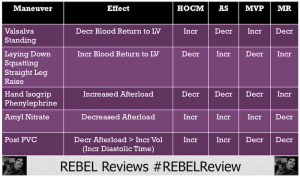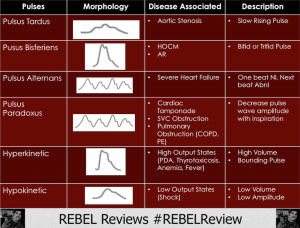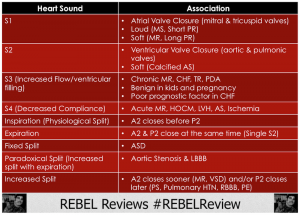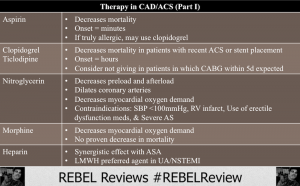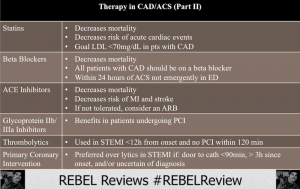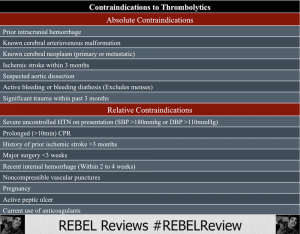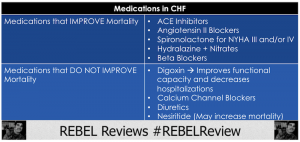5 High-Yield Cardiology Pearls to Help Pass the Internal Medicine Boards
Whether studying for emergency medicine, internal medicine, or USMLE board examinations, cardiovascular diseases are by far and away one of the biggest organ systems of which questions get asked. If you pay attention, the first three pearls are all on physical exam findings and the last two pearls are on disease processes with high morbidity and mortality. I have attached a review table for each pearl to help simplify the concepts and buzz phrases.
Pearl #1: Know what the maneuvers are that increase and decrease heart murmurs.
In general, you should know all the different maneuvers, their effect, and how they would affect valve abnormalities. It is helpful to walk yourself through each valve abnormality, and try and explain why murmurs are increased or decreased, instead of just memorizing a table, which you will forget in 1 – 2 weeks. That being said, common murmurs that seem to get the most questions are: HOCM, AS, MVP, and MR.
Pearl #2: Know the abnormal arterial pulsations and the disease state with which they are commonly associated. Arterial pulsations is another physical exam finding that can be very high-yield. Recognizing the buzz phrase (arterial pulse description) and its association to what disorder it is commonly associated can help save you time on questions, which allows you more time on other questions. This is too easy to not know these terms.
Pearl #3: Know your normal and abnormal heart sounds. Heart sounds such as S1 and S2 is also a big part of the cardiovascular physical exam on boards. Know what happens with inspiration/expiration as well as other pathologies. Don’t forget about S3 and S4. Remember, sometimes an S3 can be normal (i.e. pregnancy and children).
Pearl #4: The number one killer in the world is ischemic heart disease, so know what medications improve morbidity and mortality. First and foremost, be sure to fix modifiable coronary artery disease risk factors such as diabetes mellitus, hypertension, hyperlipidemia, and smoking. Next know what medications decrease mortality in ischemic heart disease and acute coronary syndrome. Also be sure to know the contraindications for lytics in STEMI.
Pearl #5: Congestive Heart Failure (CHF) is common, so know which medications affect mortality CHF is a common disease process seen in hospitalized, elderly patients due to improvements in revascularization techniques. 40% of these patients die from arrhythmias and sudden cardiac death; therefore knowing what medications can improve mortality is something you should know.
If you remember nothing else, KNOW THE PHYSICAL EXAM FINDINGS FOR CARDIOVASCULAR DISEASES!!! The cardiovascular physical exam is the largest portion of information that board questions in this section are derived. Each pearl has one to two charts to help simplify these concepts.







